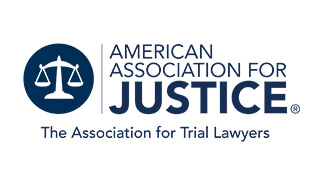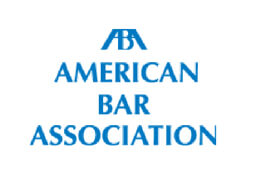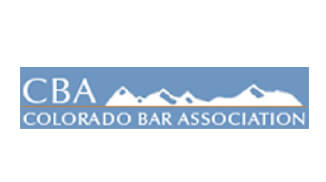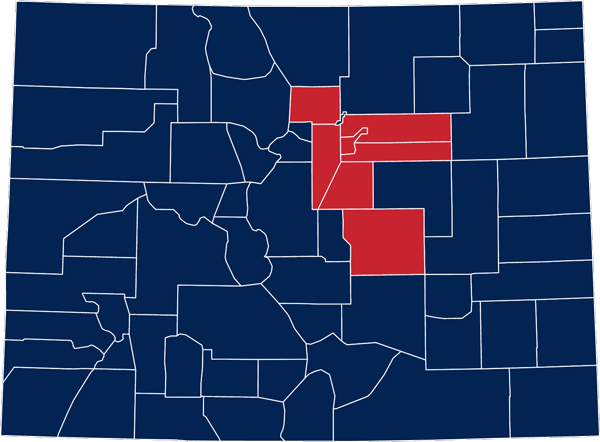If you have lost a family member because of the wrongful act of another person or company, you may be able to use the civil court system to seek justice in the form of financial compensation for some of your loss. I specify ‘some’ of your loss because it is impossible for financial compensation to restore your loved one to you. However, wrongful death claims can compensate you for financial losses such as lost income, and medical and burial expenses, and just as importantly, can sometimes correct or stop the negligence that led to the death of your family member.
What is a wrongful death lawsuit?
Colorado wrongful death lawsuits differ from most other lawsuits in that they allow a family member or another designated person to sue on behalf of the deceased. The defendant is the person who, or company that, negligently caused the death, even if an insurance company is involved.
For many, a Colorado wrongful death case is the last and only hope for some form of justice after the loss of a loved one. Like most states, Colorado leaves the decision of whether to pursue a criminal case to prosecutors. Sometimes prosecutors choose not to pursue a case because they believe they cannot meet the “beyond a reasonable doubt” standard required in criminal cases. Wrongful death claims do not have to be proven beyond a reasonable doubt, and so a civil lawsuit becomes the only way for surviving family members to leverage the power of the courts and seek justice for their loss.
What would we have to prove to win a Colorado wrongful death case?
Most civil cases require proof by a preponderance of the evidence. Another way to say that is “more likely than not”. But what do you have to prove is more likely?
Not every accidental or unexpected death justifies a wrongful death lawsuit. If you are trying to determine whether the facts surrounding a death may justify pursuing a case in Colorado, it is important to discuss those facts with a knowledgeable Colorado wrongful death lawyer. Most reputable wrongful death lawyers will be willing to discuss your case with you for free. Although you should consult an attorney before making any final decisions about your case, some general information may help you prepare for that consultation.
Colorado wrongful death law requires that the at-fault person or company had some duty to the deceased that was unreasonably breached, resulting in a death. A wrongful death case would have to involve an unreasonable or careless act or failure to act. That act would need to at least meet the legal requirement for negligence. Colorado wrongful death law also requires that the act at issue justify a lawsuit by the deceased if the deceased had not died. So a Colorado wrongful death lawyer will consider the facts of your case, and at some point must decide whether the wrongful act is something that would have justified a lawsuit by the person who was harmed if that person had survived. In addition, the at-fault party must have had some sort of duty to the deceased to act or not act. Drivers on the road have a duty to others to drive responsibly. Police have a duty to the public they serve not to violate their constitutional rights. A stranger may not have a duty to render aid.
Who can sue for wrongful death?
Colorado wrongful death cases are usually pursued by either the spouse or a child of the deceased. In most cases, if there is a spouse, he or she will have the exclusive right to pursue a wrongful death claim, or designate another person to do so, for the first year after the death. If there is no spouse, a child of the deceased may bring a wrongful death lawsuit instead. After the first year another “heir” or other designated person can pursue the claim, unless a statute of limitations applies that would forever bar the claim from being filed.
Common types of wrongful death claims:
- Car accidents
- Motorcycle accidents
- Trucking accidents
- Pedestrian and bicycle accidents
- Boating accidents
- Medical malpractice
- Nursing home neglect or abuse
- Defective products
What if a government agency (such as a police department) is at fault?
If you are considering pursuing a wrongful death case against a government agency or employee, such as in a police shooting case, different deadlines and procedures may apply to your claim. For example, under Colorado laws certain government immunities may apply, and any exceptions to those immunities may require a specific pre-filing procedure with short or early deadlines. State laws governing most lawsuits against police also require earlier filing of the lawsuit compared to other wrongful death claims. State law attempts to impose limitations on damages in these cases which may differ from those explained below for other types of wrongful death cases. However, cases involving violations of rights guaranteed by the U.S. Constitution may not be subject to the limitations and requirements of state law. Wrongful death cases are generally complex and hard-fought. That is all the more true where the defendant is a government.
Whether brought under state law, federal law, or both, cases against the government or government employees will almost always involve some sort of immunity defense. Questions about whether the law places a particular government employee or wrongful act outside the reach of civil justice tend to be complicated. The best advice for most people who are wondering whether they have a viable case against a government in Colorado is to talk to a Colorado wrongful death lawyer right away.
Delay in getting started can harm your Colorado wrongful death case in many ways. Disappearing evidence is a serious problem that can be addressed with an early preservation of evidence letter. However, failing to send the appropriate notice of claim at the appropriate time, or failure to file a lawsuit in time, could both mean permanent loss of claims.
Do not waste time. You should call me now to discuss how I can help you through this difficult time. Let’s discuss the specific facts of your case at no charge to you. Call 303-339-8846.
Damages
Damages refer to the amount of money that a person can recover in a wrongful death case. The economic damages in wrongful death cases can be thought of as payment for expenses and losses that can be calculated based on documentation. Are you able to produce a bill, invoice, or income statement to document the loss? If so, it is likely considered an economic loss. Some examples include medical expenses related to the death, funeral expenses, and lost income. Economic damages can be substantial and the importance of compensation for a loss of future economic support is hard to overestimate. There is no cap on economic damages in Colorado wrongful death cases.
Non-economic damages are less likely to be supported by documents. Sometimes insurance adjusters and even jurors underestimate the importance of non-economic damages for that very reason. It is harder to calculate damages that cannot be shown with documentation. Pain and suffering are the classic and most familiar examples of non-economic damages. If you have recently suffered the tragic loss of a close family member, you will have a full understanding that non-economic damages greatly exceed those that can be documented and calculated based upon billed losses.
Wrongful death cases benefit, maybe more than any other type of case, from a lawyer who puts in the time to understand and develop compassion for, a client’s loss. I get to know my clients on a level that larger firms have a hard time keeping up with. Because I do not accept thousands of cases all at once I have the time to really learn about your loved one, and effectively communicate how that loss has impacted you and the rest of your family. I do that for every case, so it is only natural to put in that effort for those cases that benefit most from more personalized representation.
Caps on damages
Colorado law currently places a cap on the amount of non-economic damages a jury can award in wrongful death cases. At the time of this writing, that cap is just over $468,000 after adjustments for inflation.
Jurors are not told about this cap in trial. Jurors learn about the specific facts of each case and then decide fair compensation for the actual losses based on the negligence of the defendant as proven by the evidence at trial. Jurors get to see and learn about how much the Plaintiff has lost. Then in if the jury determines that fair compensation includes non-economic damages above the cap described above, the law steps in and in most cases reduces the plaintiff’s recovery based upon an arbitrary number selected by lawmakers many years ago who have no knowledge at all about the facts. These caps result in a deception of the jury. The ability to decide fair compensation is taken out of the hands of the jury, and they are never even told. These caps limit the plaintiffs’ rights to recover damages and undermine our ability to accomplish the second major goal of the civil justice system: deterrence.
It’s about more than money
Compensation is one objective of our civil justice system. Another very important goal is to deter dangerous behavior. That means your wrongful death claim may not only be about compensating your losses. It may be an opportunity to stop, correct, or prevent the behavior that led to the wrongful death in the first place. It may be the only opportunity you have to use the power of the government to force a positive change in our society.
Money judgments against wrongdoers, whether they be individuals or companies, are an effective way to stop wrongdoing and to prevent others from making the same bad decisions. Because of this reality, lawsuits can serve to both compensate for a terrible loss and save the lives of others.
While this objective seems to overlap the role of criminal courts, it is important to remember that for most wrongful death claims the applicable legal standard is lower, and so it is slightly easier to succeed in a civil trial than it is to meet the criminal standard of ‘beyond a reasonable doubt’. Not only does criminal law require a different legal standard, but the decision to pursue those cases lies entirely with government prosecutors. The Colorado Wrongful Death case puts the power in the hands of those who have been directly harmed to seek justice themselves.
When should I contact a Colorado wrongful death lawyer?
If you have lost a family member due to the wrongful act of another, do not hesitate to contact Colorado wrongful death lawyer Vernon Ready to see how Ready Law can help. These cases are both serious and complicated. The negligence that led to death may still be a danger to others. Now more than ever it is important to choose an attorney who cares about you and your cause. I am available to discuss your case at no cost to you. There is never any upfront fee to get your case moving, and I only collect a fee if I recover money for you.
Call 303-339-8846 to Get Ready.





